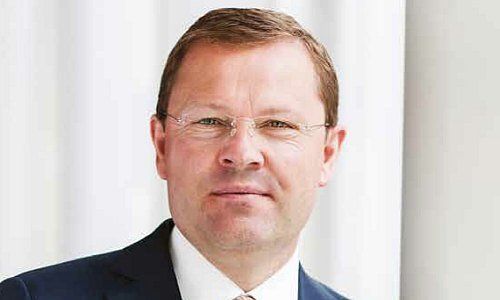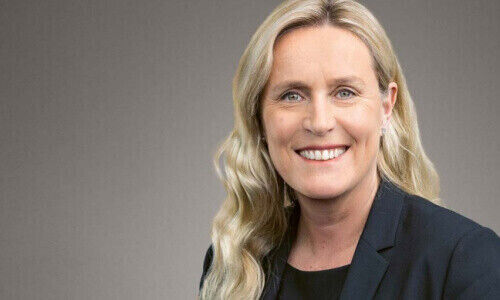UBS: Juerg Zeltner’s Conundrum
«I’m not looking for net new money,» UBS's wealth management head, Juerg Zeltner, said on Tuesday. The statement lays bare the dilemma for the head of the largest bank in the world. He is left with only one option.
UBS wealth management left investors with the impression of a slumbering giant last quarter: income is falling and net new client money is hard to come by.
The latter is UBS’ choice: «I’m not looking for net new money,» Juerg Zeltner, UBS’s private banking head, said with surprising frankness on Tuesday at a conference in Zurich organized by Swiss newspaper «Finanz und Wirtschaft».
Break with Growth Creed
The statement is tantamount to breaking with the most identifiable growth measure in wealth management: net new money. UBS no longer sees new client assets as a growth indicator.
«We’re no longer going to put ourselves under this pressure,» Zeltner said. His views mirror the harsh reality of private banking, where client assets form the heart and lungs. Zeltner’s conundrum is that more client assets often simply lead to higher costs.
«Good Assets»
UBS manages 300 billion Swiss francs more than in 2009, Zeltner said, but income hasn’t risen. In fact, the opposite is true. The head of the world’s largest private bank is voicing what many know, some are in denial about, and few have publicly expressed.
In a private banking world where investment and foreign exchange markets eat into client assets, the shortfall from interest income reaches hundreds of millions, and client angst is on the rise, assets under management are only «good» if they are either managed at the bank’s discretion or the bank has a mandate to invest.
No Leverage for Clients
In Zeltner’s words, «I’m not looking for net new money that I can’t earn anything with.» The UBS executive didn’t identify Credit Suisse by name, the rival Swiss bank which has posted healthy net new money in international wealth management.
Zeltner said he didn’t want to weigh UBS’ balance sheet or hike its asset base through lending. «We don’t do any lending in private banking which are only for the purpose of financing an entrepreneur’s cash flow,» Zeltner said, referring to the practice of «leveraging» client assets at the request of the customer.
In short, Zeltner said UBS only wants clients who are prepared to invest, and with whom UBS can make money.
Bank Not Seeking Growth
UBS gives the impression of a bank which doesn’t want to grow anymore because growth in a new, uncertain world of unpredictable financial markets and negative interest rates costs money.
The Swiss bank is effectively completely turning its back on growth: Zeltner doesn’t want any part of consolidation in private banking either, though he does concede that the bank is active in the market.
Acquisitions as Mistakes
He quickly added that of the nine acquisitions that he has overseen as head of wealth management, «eight were mistakes».
UBS’ last purchase was that of Spanish bank Santander’s Italian wealth management activities. Zeltner's strategic guidelines for deals make it difficult to even consider potential acquisitions. UBS integrates and consolidates – anything else is out of the question.
Synergies as Top Priority
That means that a partnership model of acquisition doesn’t exist for UBS. A deal either has to enable a market entry or accelerate UBS’ existing growth, Zeltner said. His top priority in dealmaking is generating synergies.
He remains true to UBS’ «anti-growth» strategy in dealmaking: Zeltner only believes in cost synergies, and not those achieved with growth. «In this new world of falling income, that would be doomed to fail.» The only possible conclusion from such a rigid view is, «very few acquisitions make sense», he said.
Just One Measure
The picture painted UBS paints of itself and of the wider industry is unsparing. In Zeltner’s world, private banking’s current conundrum is only manageable through one device.
That method is cost-cutting, streamlining, synergies, investing in cost-saving infrastructure, and in particular, letting staff go.
Battle of Attrition with Clients
Zeltner declined to detail specifics, but said that cutting «hundreds of millions» in spending had entailed «hundreds of job cuts», with more to come. Zeltner wants to avoid a cost-income ratio of more than 65 percent at any price.
The overall picture of UBS’ wealth management operations is anything but an optimistic one.
His strategy of rejecting growth is basically a sort of a battle of attrition with clients. Clients are the only ones who can halt or reverse the downward spiral by investing their cash and generating transaction income for UBS.
Client-Facing Won’t be Weakened
Zeltner and UBS’ client-facing work force is deploying all advisory skills and powers to coax clients out of passive investing and risk-aversion. The executive preaches the expertise and investment know-how of UBS and of Swiss private banking as «part of our culture», which is in high demand with clients.
UBS hasn’t been able to turn this investment expertise into higher income yet. Zeltner said he wants to be ready for D-Day though. The cost cuts aren’t aimed at advisors. «I don’t want to weaken the client-facing operations. We have to remain nimble.»



























